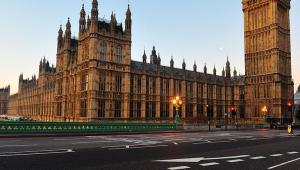The government has agreed to look at the effectiveness of sanctions getting people in work, in response to a work and pensions committee report that called the current policy “pointlessly cruel”.
But it will not assess the impact on claimants’ financial and personal well, the work and pensions committee highlighted this week.
Committee chair Frank Field said: “In response, the government has failed utterly to grasp the seriousness of the matter.
“It might want to take a look at the concept of not pushing disabled people and single parents—not to mention their children—into grinding poverty and hardship.”
The work and pensions committee report on sanctions, published in November, called the regime “so counter-productive it just seems pointlessly cruel”.
“Our report laid bare the inhumanity of the #sanctions regime Government has pursued for years without ever stopping to check whether it #works or what it is doing to the people it is meant to 'support'" @frankfieldteam on @DWP response we've pub'd today https://t.co/eD48LYOhLt
— Work & Pensions Committee (@CommonsWorkPen) 11 February 2019
Under the policy, out-of-work benefits can be stopped if a claimant misses an appointments or meetings aimed at getting them into employment. Claimants face being stripped of up to 100% of their jobseekers allowance or universal credit payments.
If conditions are not met, benefits are stopped for four weeks, which can mean a loss of up to £300 for a claimant over the age of 25. Sanctions can last for three months up to a year.
In some cases, claimants can lose benefits for as long as three years, the MPs said.
A 2012 law stepped up the sanctions system, making the penalties “longer, more severe and applicable to more people than ever before”, the committees’ report said last year.
MPs called for lone parent’s benefit never to be docked by more than 20%, in their report. The government rejected this and only committed to assessing the employment impact of sanctions on this group.
The committee said it had already highlighted the “deep difficulties lone parents are encountering under the major welfare reforms of the decade, including in its report on support for childcare costs under universal credit.”
The rate of sanctions under universal credit was higher under universal credit than the legacy system, the report in November noted. It also said sanctions were the “only major welfare reform this decade never to have been evaluated”.
The Department for Work and Pensions, in its response published on Monday, said sanctions were a “motivating factor in moving claimants closer to work”.
A DWP spokesperson said the reaction from the committee was “disappointing” as the department had welcomed the report and would take on “many of its recommendations to protect vulnerable claimants”.
The spokesperson added that fewer than 3% of those subject to requirements for their benefits are under sanctions and “only when they have not met them without good reason”.
Work and pensions secretary Amber Rudd admitted to the House of Commons on Monday the current increasing use of food banks is party down to problems in rolling out universal credit.











